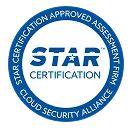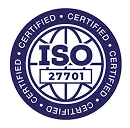Achieving operational excellence is a universal objective for businesses across all industry verticals. In the pursuit of this goal, many have discovered the transformative potential of Professional Services Automation (PSA).
PSA tools, designed to streamline and automate various administrative and operational tasks, are equipping organizations with the efficiency, visibility, and control necessary to reach new heights of performance. Drawing on proven models of successful implementation from diverse sectors, this discourse delves into the specifics of unlocking operational excellence with professional services automation.
We will take a detailed look at what makes these tools so powerful, how to leverage a PSA tool in your own operation and provide practical, experience-based tips to ensure successful deployment for maximum returns. So, get ready to embark on a journey that promises to change your understanding of operational efficiency and the role professional services automation plays in it.
What is operational excellence?
Operational excellence, in simple terms, refers to the ability of an organization to optimize its operational processes and achieve exceptional results. It is a state where every aspect of the company's operations is aligned with its strategic goals, ensuring efficiency, productivity, and superior performance across the board.
At its core, operational excellence is not limited to any specific sector or industry. It encompasses a holistic framework that focuses on continuous improvement, innovation, and the pursuit of excellence in every business function. Whether it's manufacturing, service, healthcare, or any other field, operational excellence seeks to eliminate waste, reduce costs, and enhance customer satisfaction.
Achieving operational excellence requires a combination of effective leadership, well-designed processes, skilled employees, and the right tools and technologies. It involves streamlining workflows, optimizing resource allocation, implementing performance metrics and KPIs, fostering a culture of collaboration, and embracing a mindset of continuous improvement.
Organizations that embrace operational excellence can experience numerous benefits, including increased efficiency, improved customer satisfaction, reduced costs, shorter cycle times, enhanced employee engagement, and a strengthened competitive advantage. By unlocking operational excellence, companies can attain sustainable growth and superior business performance, setting the stage for long-term success.
Core principles of operational excellence
Operational excellence is the relentless pursuit of continuous improvement in an organization's processes, systems, and culture to drive superior performance and deliver exceptional results. It involves the alignment of people, processes, and technology to achieve organizational goals and meet customer expectations. Successful implementations of professional services automation (PSA) software can significantly contribute to unlocking operational excellence. Let's delve into the core principles of operational excellence that can pave the way toward success.
1. Customer-centricity
First and foremost, a commitment to customer-centricity is crucial for operational excellence. Organizations need to understand their customers' needs, expectations, and pain points and align their operations accordingly. By focusing on delivering value to customers and exceeding their expectations, businesses can enhance customer loyalty and gain a competitive edge.
2. Continuous improvement
Another key principle is fostering a culture of continuous improvement. Organizations that embrace operational excellence encourage their employees to constantly seek opportunities for process optimization. They foster a learning environment where ideas are encouraged, failures are seen as opportunities for growth, and success is celebrated. This mindset ensures that the organization remains agile and adapts to changing market dynamics.
3. Standardized processes
Efficient and standardized processes are the backbone of operational excellence. Organizations need to identify and streamline their critical processes to minimize waste, eliminate redundancies, and improve productivity. By standardizing processes, organizations can ensure consistent quality, reduce errors, and increase efficiency throughout the entire value chain.
4. Data-driven decisions
Data-driven decision-making is also integral to operational excellence. Organizations should collect and analyze data to gain insights into their operations. Data can help identify bottlenecks, inefficiencies, and areas for improvement. By leveraging data analytics, organizations can make informed decisions to drive operational excellence and achieve their strategic objectives.
5. Communication and collaboration
Finally, effective communication and collaboration are essential for operational excellence. Organizations need to foster a collaborative work environment where teams across departments and functions can work seamlessly together. Efficient communication channels and collaboration tools enable real-time knowledge sharing, problem-solving, and innovation, driving operational excellence.
Successful implementations of PSA software can provide the necessary framework and tools to drive operational excellence, helping organizations stay ahead in today's dynamic business landscape.
Frameworks for operational excellence
When it comes to professional services firms, operational excellence plays a vital role in distinguishing successful organizations from the rest. Implementing a robust operational excellence framework is essential for streamlining operations, achieving higher productivity, and ensuring client satisfaction. Let's explore some of the most effective frameworks that have proven successful in unleashing operational excellence in professional services firms.
1. Lean Six Sigma: Popularized by manufacturing companies, Lean Six Sigma has crossed over to the professional services industry as an effective methodology for achieving operational excellence. It combines the Lean principles of eliminating waste with Six Sigma's data-driven approach to process improvement. By identifying and eliminating non-value-added activities, professional services firms can reduce costs, enhance efficiency, and deliver high-quality services to clients.
2. Agile Project Management: Agile methodologies, such as Scrum and Kanban, have gained significant traction in the professional services industry. By promoting collaboration, flexibility, and adaptability, Agile project management frameworks enable firms to respond swiftly to changing client requirements and market dynamics. By breaking down projects into manageable chunks and continuously iterating, professional services firms can boost productivity, deliver projects on time, and exceed client expectations.
3. Capability Maturity Model Integration (CMMI): CMMI provides a framework for optimizing processes and fostering continuous improvement. It emphasizes the standardization of processes, measurement of performance, and proactive identification of risks and opportunities. By adopting CMMI, professional services firms can enhance their ability to deliver consistent, high-quality services while reducing variability and increasing efficiency across the organization.
4. People, Processes, and Technology (PPT) Framework: Operational excellence is not just about technology or processes; it is also about the people who drive and execute them. The PPT framework recognizes the interplay between people, processes, and technology in achieving operational excellence. It emphasizes the need to align the right talent, efficient processes, and supportive technology to enable professional services firms to achieve their strategic objectives.
Operational excellence is not merely a buzzword; it is critical for professional services firms to thrive in a competitive landscape. By implementing frameworks like Lean Six Sigma, Agile project management, CMMI, and the PPT framework, organizations can unlock their true potential and excel in delivering exceptional services to their clients.
Benefits of operational excellence
Organizations that strive for operational excellence experience a range of benefits, which not only enhance their competitive advantage but also contribute to their long-term success. Here are some key benefits of operational excellence:
1. Increased efficiency and productivity
By implementing best practices and optimizing processes, operational excellence allows organizations to streamline their operations and eliminate unnecessary steps or activities. This results in increased efficiency, reduced waste, and improved productivity. Employees are empowered to work smarter, not harder, as they have clear guidelines and standardized procedures to follow.
2. Enhanced customer satisfaction
Operational excellence emphasizes the delivery of high-quality products or services consistently. By meeting or exceeding customer expectations, organizations can cultivate strong customer loyalty, which is essential for sustainable growth. When customers are satisfied, they are more likely to spread positive word-of-mouth, which can lead to new business opportunities.
3. Cost reductions
Operational excellence focuses on eliminating non-value-added activities, reducing waste, and improving processes. These efforts often lead to cost reductions in various areas, such as inventory management, supply chain, and labor. By optimizing operations, organizations can maximize their profitability and invest in other strategic initiatives.
4. Faster time-to-market
In today's fast-paced business environment, speed is critical. Operational excellence enables organizations to shorten the time it takes to bring new products or services to market. By effectively managing their processes and eliminating bottlenecks, organizations can seize market opportunities quickly, staying ahead of competitors and capturing a larger market share.
5. Continuous improvement culture
Operational excellence is not a one-time achievement but rather a mindset and organizational culture. Organizations that embrace operational excellence foster a culture of continuous improvement, where employees are encouraged to identify issues, suggest improvements, and implement changes. This proactive approach drives innovation and enables organizations to stay agile and adaptable in a rapidly changing business landscape.
By unlocking the potential of operational excellence, organizations can achieve sustainable growth and maintain a competitive edge in today's dynamic business world.
How operational excellence enables continuous improvement in a complex business environment
When it comes to complex business environments, achieving operational excellence is no easy feat. However, it is an essential factor in driving success and staying ahead in today's competitive market. Operational excellence involves continuously improving processes, reducing waste, increasing efficiency, and delivering high-quality products or services consistently. In this sub-section, we will explore how operational excellence can help businesses strive for continuous improvement.
1. Optimizing processes
Operational excellence calls for a thorough examination of current processes to identify bottlenecks, inefficiencies, and areas for improvement. By mapping out workflows and analyzing data, businesses can streamline operations, eliminate redundancies, and enhance productivity. This continuous process of process optimization ensures that businesses are always one step ahead and ready to adapt to changing market dynamics.
2. Enhancing decision-making
With operational excellence, businesses are better equipped to make informed decisions. Accurate and real-time data plays a crucial role in driving decision-making. By embracing technology, such as a PSA tool, businesses can access insights into key performance indicators, project timelines, resource utilization, and financial metrics. These insights help businesses identify areas for improvement and make data-driven decisions to achieve continuous improvement.
3. Empowering employees
Operational excellence fosters a culture of continuous improvement by empowering employees at all levels. By encouraging employee engagement and involvement, businesses can tap into the knowledge, skills, and expertise of their workforce. Employees are more likely to contribute their ideas, suggest improvements, and be proactive in finding innovative solutions. This collaborative approach ensures that businesses are continuously evolving and adapting to meet customer demands effectively.
4. Delighting customers
Operational excellence enables businesses to deliver consistent quality, accelerate project delivery, and exceed customer expectations. By streamlining processes and continuously improving, businesses can eliminate errors, reduce project delays, and improve customer satisfaction. Happy customers not only become loyal advocates but also provide valuable feedback that further drives the cycle of continuous improvement.
In conclusion, operational excellence is a key driver for continuous improvement and can unlock the full potential of businesses and help them outperform their competitors. With the right tools, such as PSA solutions, businesses can achieve operational excellence and stay ahead in today's rapidly changing marketplace.
How to unlock operational excellence with PSA for your business
In today's hyper-competitive business landscape, achieving operational excellence is no longer a luxury but a necessity. To stay ahead of the competition and maximize profitability, organizations need efficient processes, streamlined operations, and a comprehensive understanding of their performance.
Professional Services Automation (PSA) software, with its powerful capabilities, can be the key to unlocking operational excellence for your business. Here's how:
1. Centralized resource management: PSA software provides a centralized platform for managing and optimizing your resources. By gaining real-time visibility into resource availability and utilization, you can effectively allocate resources based on skill sets, project demands, and customer preferences. This eliminates over or underutilization of resources, improving productivity and reducing costs.
2. Streamlined project management: With a PSA tool, you can streamline your project management processes from initiation to completion. This includes creating project plans, assigning tasks, tracking progress, managing dependencies, and monitoring timelines. By enhancing project visibility and control, PSA software enables you to deliver projects on time, within budget, and with the highest quality standards.
3. Comprehensive analytics and reporting: PSA software offers robust analytics and reporting capabilities, allowing you to gain actionable insights into your business operations. You can measure key performance indicators (KPIs), such as resource utilization, project profitability, customer satisfaction, and revenue growth. These insights enable data-driven decision-making, helping you identify areas of improvement and optimize your operations for better performance.
4. Efficient time and expense tracking: Time is money, and efficient time and expense tracking are crucial for operational excellence. A PSA tool automates time and expense capture, making it easier for employees to report their billable hours and expenses accurately. This eliminates manual errors, improves billing accuracy, and streamlines the invoicing process.
5. Integration and collaboration: A PSA tool integrates with other essential business systems, such as customer relationship management (CRM) and financial management. This creates a seamless flow of information across the organization, enabling better coordination, collaboration, and data integrity. Smooth integration enhances operational efficiency, reduces duplication of efforts, and facilitates accurate forecasting and planning.
Rocketlane PSA: The all-in-one tool for operational excellence
You're probably wondering now, which is the best PSA software out there that you can leverage for your business' operational excellence.
Rocketlane, of course!
Bring cohesion and efficiency into your operations, benefit from a 360° project view, and automate your workflow to focus on what truly matters.
With Rocketlane PSA, not only do you get the ability to manage projects expertly, but you also gain the power to collaborate seamlessly with your clients and third-party vendors, elevating the experience for everyone involved.
Rocketlane PSA doesn’t just offer end-to-end project management; it is packed with various thoughtfully designed features:
- Holistic budget management and project accounting with time tracking, timesheets, time reporting, and achievable billable utilization
- Comprehensive resource management, including capacity planning, skill matching, scheduling, and allocation and automated allocation
- Versatile project reporting and analytics for hey business intelligence and insights
- Interval IQ to measure and optimize go-live time
- Automated project creation
- Task automation and automated reminders for seamless project updates
- Customizable client-facing portal for superior client interaction
- Partner Central for collaborating seamlessly with third parties
- Auto-triggered CSAT surveys to gauge client satisfaction
Undoubtedly, the journey to operational excellence can be intricate, especially for businesses operating in highly complex environments. The use of PSA software can significantly simplify this journey, offering an array of transformative benefits. Utilizing PSA tools can streamline company workflows, increase visibility, and foster comprehensive project management, thereby bolstering efficiency and ensuring a higher degree of operational success. Moreover, these benefits are not merely theoretical or transient. They have been proven and spotlighted through myriad successful implementations across numerous industries.
Businesses venturing into the PSA landscape have found that the automation of labor-intensive processes has led not only to cost savings but also to the elimination of human error, thus enhancing the overall quality of the services provided. The advanced analytics these tools offer also lend a superior, real-time understanding of workflow events, enabling proactive decision-making and solving issues before they escalate. Not to mention, PSA software, with its emphasis on resource allocation and forecasting, helps businesses optimize their resource utilization, ultimately aligning project goals with organizational objectives.
As gleaned from successful implementations, the path to operational excellence becomes significantly less turbulent with the aid of PSA software. The key lies in understanding the specific needs of your operations and selecting the solution that best suits them. The realization of operational excellence is attainable for every business, and with PSA tools, it might just be a few clicks away.
If you want to ensure sustained and scalable operational excellence for your business, sign up for a free trial of Rocketlane today for a streamlined and efficient experience!
Frequently asked questions on operational excellence
Here are questions that come up often on the subject of operational excellence.
1. How do you unlock operational excellence?
Professional services businesses can achieve operational excellence by streamlining their processes, adopting technology solutions, investing in employee training and development, and implementing a culture of continuous improvement.
2. What actions can you implement in your project to improve operational excellence?
To improve operational excellence in a project, several actions can be implemented:
1. Streamline processes: Identify and analyze areas of inefficiency in existing processes and implement improved workflows.
2. Utilize tools and software like Rocketlane to streamline operations, reduce errors, and enhance productivity.
3. Embrace a culture of continuous improvement to implement innovative ideas and best practices that enhance operational excellence.
4. Invest in employee training and development
5. Standardize processes and documentation
6. Encourage collaboration and communication among project team members
3. What are the 4 key activities for an organization to achieve operational excellence?
The four key activities for an organization to achieve operational excellence are:
1. Process improvement: This involves analyzing and optimizing business processes to enhance efficiency, reduce waste, and improve productivity. Organizations strive to identify and eliminate bottlenecks, streamline workflows, and implement best practices to achieve operational excellence.
2. Continuous improvement: This refers to an ongoing effort to incrementally enhance processes and systems within an organization. It involves regularly identifying areas for improvement, leveraging feedback from customers and employees, and implementing changes to drive continuous growth and innovation.
3. Employee engagement: Engaging employees is crucial for achieving operational excellence. Organizations need to ensure that their workforce is motivated, empowered, and aligned with the organization's goals. This can be achieved through effective communication, training, and development programs, recognition and reward systems, and fostering a positive work culture.
4. Performance measurement: To achieve operational excellence, organizations need to establish performance metrics and measurement systems to monitor progress and identify areas of improvement. Key performance indicators (KPIs) are used to track operational performance, measure efficiency, and evaluate the effectiveness of process improvements. Regular monitoring and analysis of data enable organizations to make data-driven decisions and continuously improve their operations.
4. What are the 3 components of operational excellence?
The three components of operational excellence are:
1. Process efficiency: This involves ensuring that the processes within an organization are streamlined and optimized for maximum efficiency. It focuses on eliminating waste, reducing unnecessary steps, and improving productivity.
2. Quality management: This component emphasizes the importance of delivering high-quality products or services consistently. It involves implementing quality control measures, continuous improvement initiatives, and a customer-focused approach to ensure customer satisfaction.
3. Employee mngagement: This component recognizes the significant role employees play in achieving operational excellence. It involves fostering a positive and collaborative work environment, promoting employee involvement and empowerment, and providing the necessary training and resources to enhance skills and performance.
5. What are some common challenges in implementing operational excellence for professional services businesses?
Common challenges include resistance to change, lack of clear goals and metrics, difficulty in aligning processes across different teams or departments and maintaining momentum for continuous improvement.
6. How long does it take to see the results of implementing operational excellence in professional services businesses?
The timeframe for seeing results can vary depending on the size and complexity of the business, but typically it takes several months to a year to start realizing the benefits of operational excellence.


























.webp)